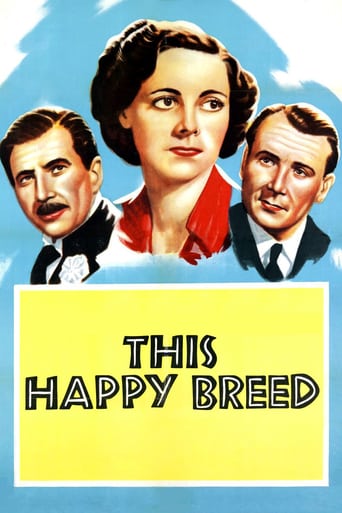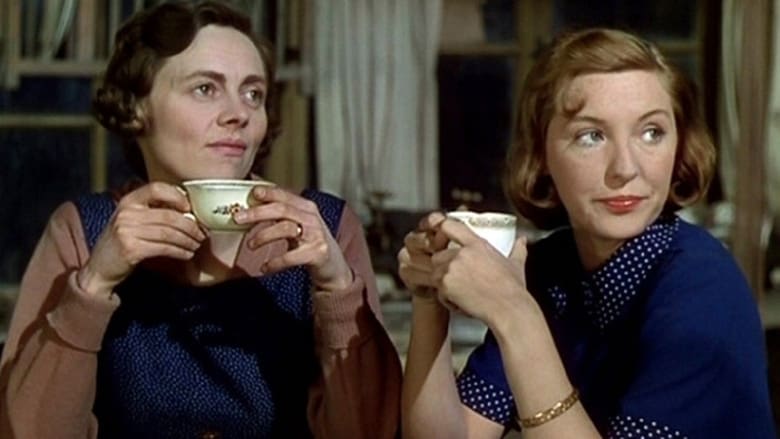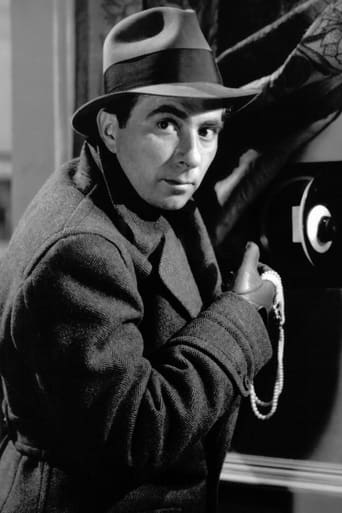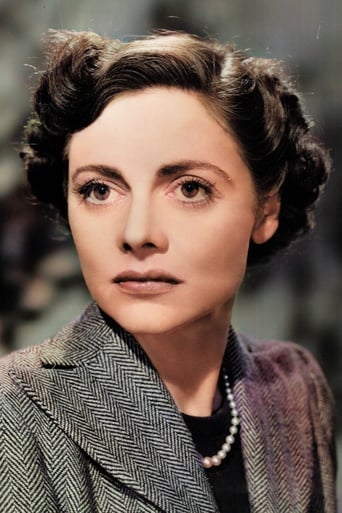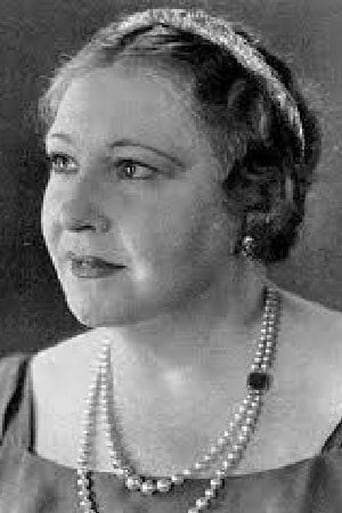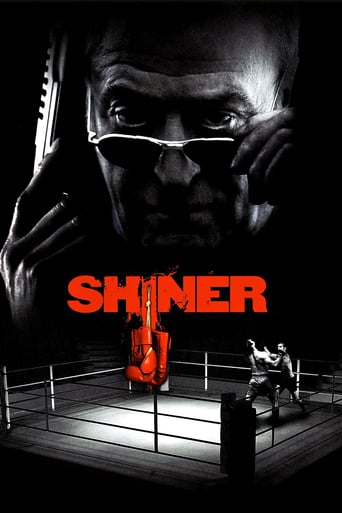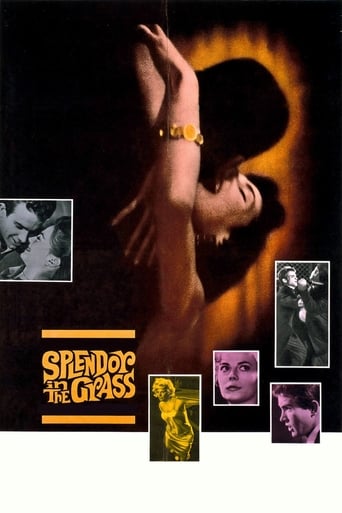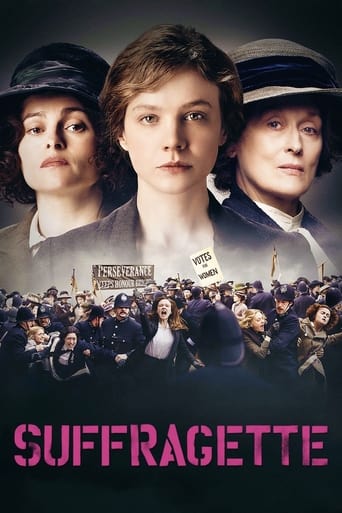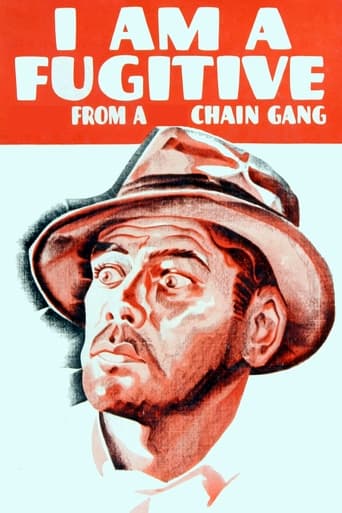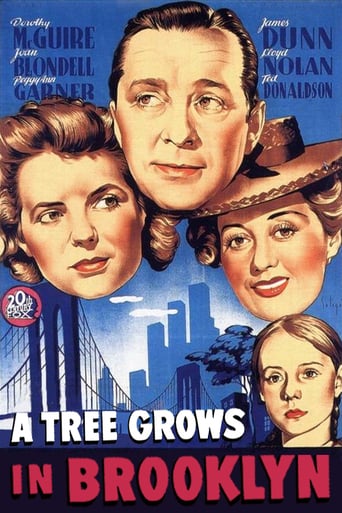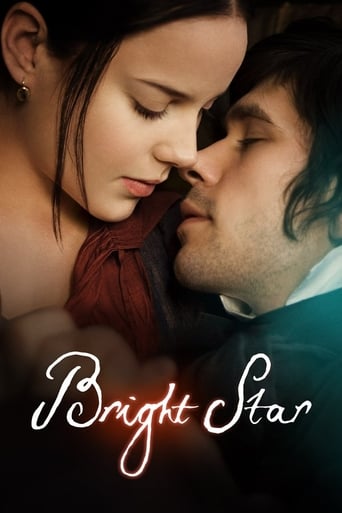This Happy Breed (1947)
In 1919, Frank Gibbons returns home from army duty and moves into a middle-class row house, bringing with him wife Ethel, carping mother-in-law Mrs. Flint, sister-in-law Sylvia and three children. Years pass, with the daily routine of family infighting and reconciliation occasionally broken by a strike or a festival.
Watch Trailer
Cast
Similar titles
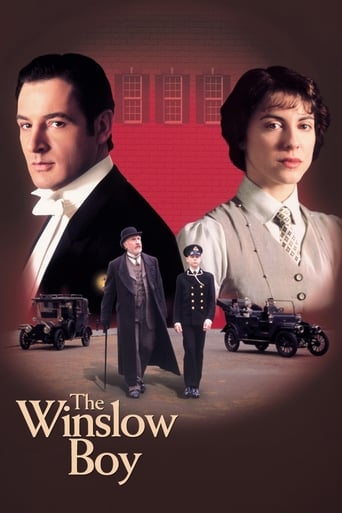
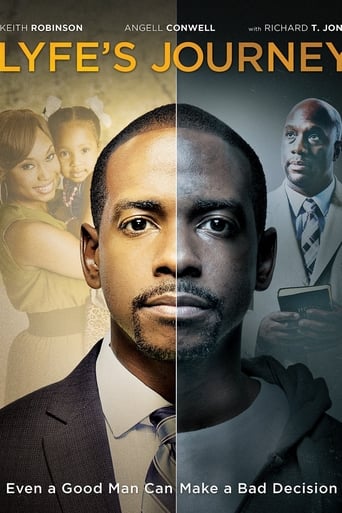
Reviews
People are voting emotionally.
It's entirely possible that sending the audience out feeling lousy was intentional
It’s not bad or unwatchable but despite the amplitude of the spectacle, the end result is underwhelming.
The story, direction, characters, and writing/dialogue is akin to taking a tranquilizer shot to the neck, but everything else was so well done.
I woke up in the middle of the night and this film had just begun. At first it seemed old and dated, but as I continued watching, I became enthralled in the ebb and flow of the character sketches unfolding. The Happy Breed is an excellent timepiece, taking place between World War I and World War II, about an average family facing average joys, tragedies, changes, and growth. The only actor I recognized was John Mills, but based on their performances in this film, I'm certain most of the roles were played by very accomplished professionals. The fact that the characters are British, and that the story took place in the early 1900's, does not alienate viewers of different nationalities or generations. The film is timeless because it deals with everyday human struggles and conquests in such a way that most family minded viewers can relate to. I would highly recommend the film to anyone who enjoys realistic dramas, with just enough light-hearted humor to balance things out.
i love This Happy Breed for so many reasons, not least of them being curling up on the sofa on a drizzly afternoon to watch it with my dear mum. along with brief encounter this is one of my all time favourite films. John Mills, Kay Walsh, Celia Johnson, Stanley Holloway and Robert Newton are brilliant, and by the time the credits roll, i feel as though i've been through their ups and downs, their laughter and tears with them. the interaction between the spinster sister and the old girl always makes me smile, as does the Christmas scene with the family gathered round the piano, watch the son in particular. in my humble opinion this is definitely another David Lean classic, and not to be missed if like me you enjoy glimpses into a bygone era. oh, and a little mention should be made of Percy, he had his paws buttered like the true professional he very clearly was.
A deeply affecting film that quickly outstrips its own agitprop frame to become a robust but romantic drama. David Lean (and Noel Coward) create a sort of middle-aged rite-of-passage domestic epic, in which the world's woes and loves are played out in a Clapham terrace. The large, impressive ensemble is led by the mother in a parental couple moving their family into a home following 1919 demobilisation. Celia Johnson is familiar to many for her subsequent film for Lean, Brief Encounter, yet this is a thoroughly intelligent, coruscating, indeed modern screen performance that dominates foils as fine as Robert Newton's Frank (the husband) or John Mills' carefully graded Billy.Like all effective romances constructed over a time period, we become familiar with the space as well as the people. The characters are well- drawn and maintained but so is the design of the inside of the house. Key to this is the use of the back door and the garden. This is informal gate to discreet domestic life in England between the wars: a refuge from the formal entrance at the street, the garden where men are reunited and family nurtured in fact or in the symbolism of the compulsive watering of plants. It's also where the one tragedy of the film is learnt in a fine single-take tracking shot, rooted in the kitchen but looking out into the garden for the parents to come in and show the way forward. 8/10
This film is set between the wars and spans roughly 20 years. WWI has just ended when the film begins. The man of the house is back from fighting and the family is moving into a new home. Soon, you start to realize that this 'typical' English family is darned annoying! Now I know this is considered to a very good film and has a very respectable overall score, but listening to the grandmother and aunt prattle on and on and on throughout the film grated on me--and was hoping that someone would toss them out or hit them! And, as the teenagers grew into adulthood, they, too, often became annoying brats. And it made me wonder...was the supposed to be a film to bolster the spirit of the Brits or make you sympathize for the enemy?! After all, aside from the nice but ineffectual mother and father, they were a pack of jerks! And, as the film inexorably moves through the next decades, some of the folks don't improve--the granny and aunt are STILL obnoxious. The idiot kids (especially the one daughter) eventually turn things around...but it sure takes too much of the film! Heck, I could see the Axis using this film to show the German people to persuade them how weak and annoying the Brits were (which they are NOT--but the film sure makes it seem that way).While I KNOW that David Lean is one of the gods in the film world, I really think this one is a huge disappointment due to characters who seem more like broad caricatures instead of real folks and a story that bounces through so many years that you rarely feel connected to the characters. I think that Mr. and Mrs. Gibbons (the parents) were wonderfully written and the idea of a story of the working class on the outbreak of WWII is great--but something is missing from this one. Episodic and tough to believe at times, you don't expect a Lean film (and his first color one to boot) to be this mediocre.
